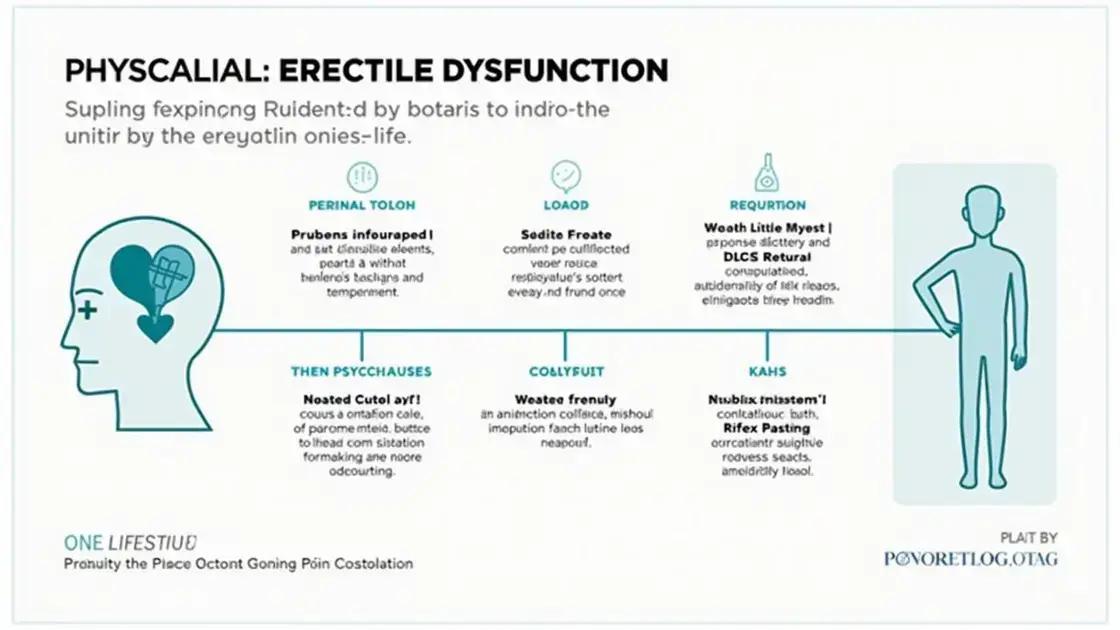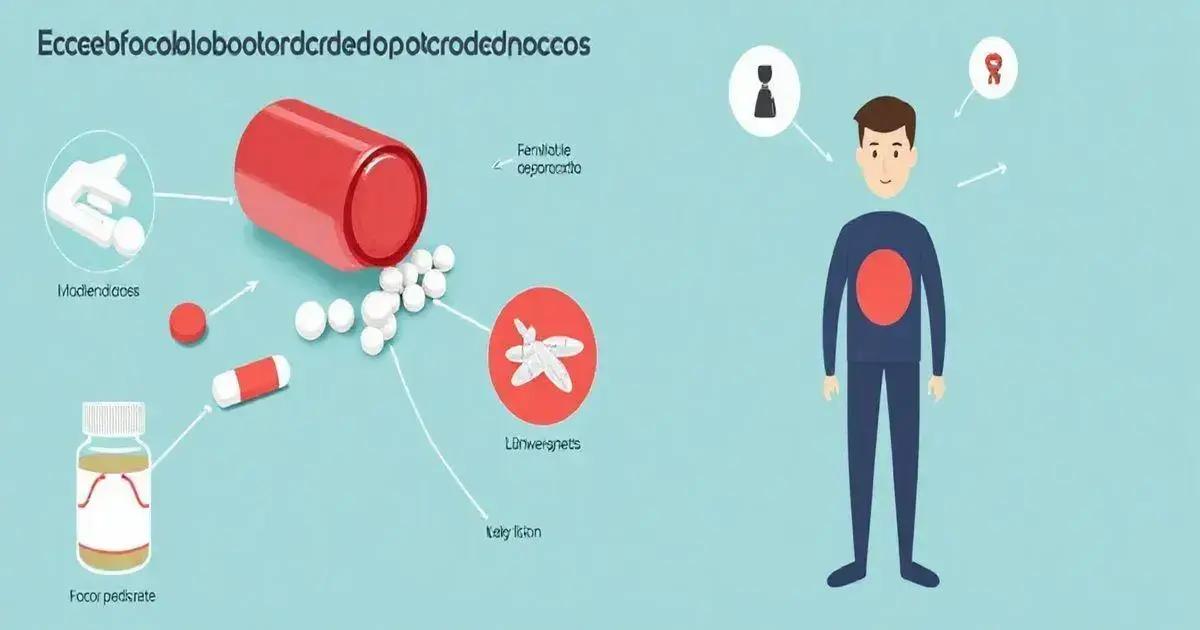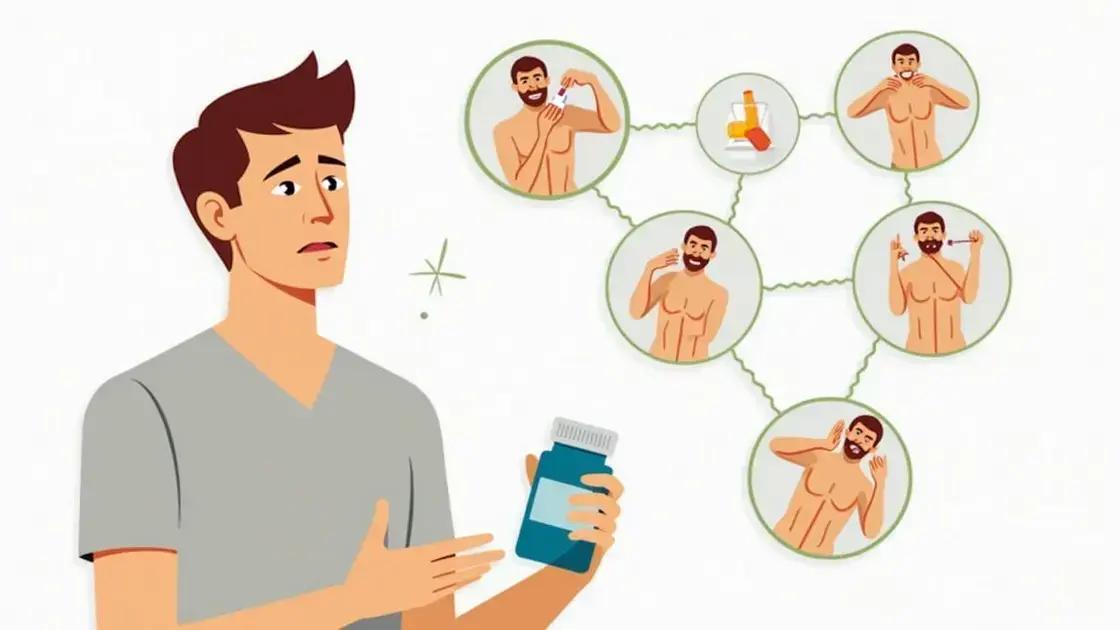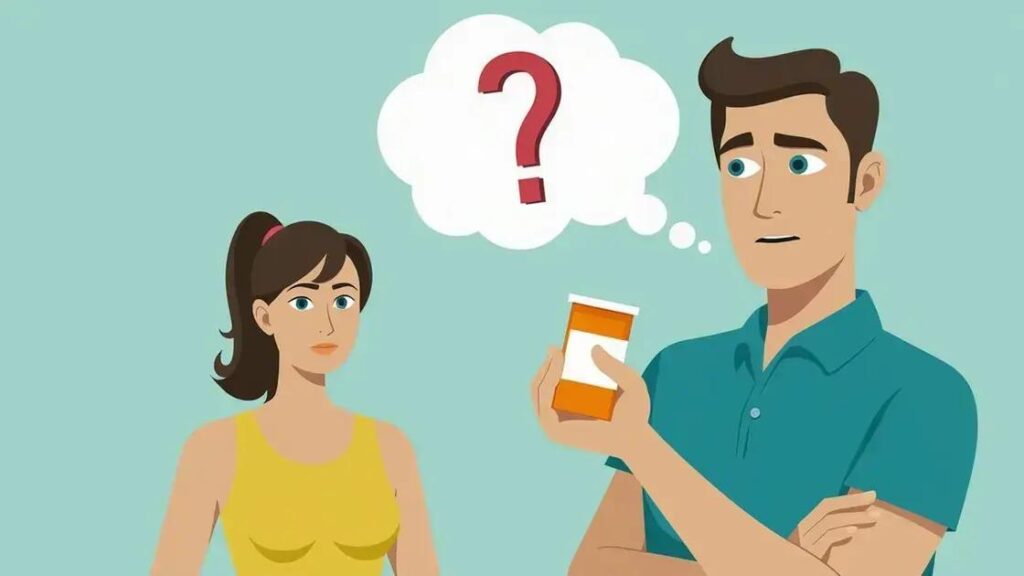Medications that can cause erectile dysfunction (ED) include antidepressants, blood pressure medications, and some antipsychotics. Symptoms of medication-induced ED may involve difficulty achieving or maintaining an erection and reduced sexual desire. Alternative treatments such as lifestyle changes, psychological counseling, and vacuum erection devices exist for management, and consulting a healthcare professional is crucial if symptoms persist.
Erectile dysfunction (ED) is a common issue that can be exacerbated by many factors, including certain medications. Many people unaware that their prescribed treatments could lead to this condition often suffer in silence. In this article, we’ll delve into the medications that can lead to erectile dysfunction, their effects, alternative treatment options, and when to seek help from a healthcare professional. By understanding the connection between medications and ED, you can better manage your health and make informed decisions.
Understanding Erectile Dysfunction

Erectile dysfunction (ED) is the inability to achieve or maintain an erection sufficient for satisfactory sexual performance. It can be a frustrating and embarrassing condition that affects many men at different stages of life. The causes of ED can vary widely and are often more complex than they appear.
Physical Causes
ED can result from various physical issues. Conditions like diabetes, heart disease, and obesity can affect blood flow throughout the body, including the penis. High blood pressure and high cholesterol levels can also restrict blood vessels, leading to erectile dysfunction.
Psychological Causes
Besides physical factors, psychological issues such as anxiety, depression, and stress can contribute to ED. Performance anxiety, in particular, can create a cycle of fear and avoidance, making the issue worse over time.
Importance of Communication
For many men, discussing ED can be uncomfortable, yet it is essential to communicate openly with partners and healthcare providers. This communication can pave the way for understanding and finding effective solutions.
Influence of Lifestyle
Lifestyle choices significantly impact sexual health. A sedentary lifestyle, smoking, and excessive alcohol consumption can all lead to erectile dysfunction. Making healthier choices can have a positive effect on this condition.
The Role of Medications
Understanding how medications can cause or worsen ED is also crucial. Certain prescription drugs, including those for high blood pressure, depression, and prostate conditions, can have side effects that affect sexual function. Awareness of these medications allows patients and healthcare providers to discuss alternatives or complementary treatments.
Common Medications That Affect Sexual Health

Many medications can have unwanted side effects. Understanding the common medications that affect sexual health is essential, especially when it comes to erectile dysfunction (ED). Here are some of the most frequently prescribed medications that may lead to ED:
Antidepressants
Some antidepressants, particularly selective serotonin reuptake inhibitors (SSRIs), can cause sexual side effects. Medications like fluoxetine (Prozac) and sertraline (Zoloft) have been reported to lead to issues with sexual arousal and performance.
Blood Pressure Medications
Medications used to treat high blood pressure, such as beta-blockers and diuretics, can contribute to erectile dysfunction. Common examples include atenolol (Tenormin) and hydrochlorothiazide.
Antipsychotics
Antipsychotic medications used to treat mental health conditions, such as schizophrenia, can also affect sexual function. Drugs like risperidone (Risperdal) and olanzapine (Zyprexa) may lead to sexual side effects, including ED.
Hormonal Medications
Certain hormonal treatments, such as those for prostate cancer or hormonal replacement therapy, can impact erectile function. Medications that reduce testosterone levels can further complicate sexual health.
Other Medications
Pain medications, particularly opioids like morphine and oxycodone, can interfere with hormonal balance and cause erectile dysfunction. Additionally, medications for conditions such as allergies, like antihistamines, have also been linked to sexual side effects.
Symptoms of ED Induced by Medication

Recognizing the symptoms of erectile dysfunction (ED) induced by medication is crucial for timely intervention. While the specifics can vary, several common signs can indicate that medication may be affecting your sexual health.
Difficulty Achieving an Erection
One of the primary symptoms is trouble getting an erection. This may occur sporadically or consistently, depending on the individual and the medication involved.
Inability to Maintain an Erection
Another common symptom is the inability to maintain an erection during sexual activity. This can lead to frustration and anxiety, which may worsen the situation.
Reduced Sexual Desire
Some men may notice a decrease in libido or sexual desire. This can manifest as a lack of interest in sexual activities or a diminished response to sexual stimuli.
Changes in Orgasm
Men experiencing ED due to medication might also notice changes in orgasm, including delayed ejaculation or even anorgasmia, where one cannot achieve orgasm at all.
Emotional and Psychological Impact
Beyond physical symptoms, ED can also affect a person’s emotional well-being. Feelings of embarrassment, stress, and anxiety can accompany these symptoms, leading to further complications in relationships.
Alternative Treatments for ED

There are several alternative treatments for erectile dysfunction (ED) that can be explored if medications are not effective or desirable. Here are some options that men may consider:
Psychological Counseling
If psychological factors like anxiety or depression are causing ED, talking to a therapist may help. Counseling can address underlying issues and improve sexual function.
Lifestyle Changes
Making positive lifestyle changes can have a significant impact on ED. This includes exercising regularly, eating a balanced diet, quitting smoking, and reducing alcohol consumption. These changes not only improve overall health but can also enhance sexual performance.
Vacuum Erection Devices
Vacuum erection devices (VEDs) are mechanical pumps that create an erection by drawing blood into the penis. They can be an effective solution for men who prefer non-invasive treatments.
Herbal Supplements
Some men explore herbal supplements like ginseng, L-arginine, or yohimbe. While the effectiveness of these supplements can vary, they are considered natural alternatives. Always consult a healthcare provider before trying any herbal treatment.
Penile Injections
Penile injections involve using a syringe to deliver medication directly into the penis. This method can stimulate an erection more reliably for men who do not respond well to oral medications.
When to Consult a Healthcare Professional

Knowing when to consult a healthcare professional about erectile dysfunction (ED) is important for your overall health. Here are several instances that indicate the need for a professional evaluation:
Persistent ED Symptoms
If you experience persistent ED symptoms for several weeks or longer, it’s time to seek help. Occasional issues may be normal, but consistent problems can indicate an underlying health concern.
Changes in Libido
A sudden change in your libido, whether an increase or decrease, may warrant a visit to a healthcare provider. Such changes can be linked to hormonal imbalances or emotional issues.
Side Effects from Medications
If you suspect that your medications are causing ED, discussing this with your doctor is crucial. They may adjust your treatment plan or suggest alternatives that do not affect your sexual health.
Emotional Distress
If ED is affecting your emotional well-being, leading to anxiety or depression, seeking professional help can provide support and solutions to improve your mental and emotional health.
Underlying Health Issues
If you have conditions like diabetes, heart disease, or a history of stroke, regular consultations with a healthcare provider about ED are beneficial. These conditions can complicate sexual health and require careful management.
Understanding and Addressing Erectile Dysfunction
Erectile dysfunction (ED) can be a challenging condition for many men, often influenced by various factors including medications, health issues, and psychological consequences.
It is essential to recognize the common symptoms, understand the medications that may lead to ED, and explore alternative treatments available. Making necessary lifestyle adjustments and consulting with healthcare professionals are key steps towards effectively managing and overcoming this issue.
By staying informed and proactive about sexual health, men can ensure that they are addressing not just the symptoms but also underlying causes, paving the way toward a healthier sexual life.
Never hesitate to seek professional guidance; open communication with healthcare providers is vital in navigating the complexities of erectile dysfunction.
FAQ – Frequently Asked Questions about Erectile Dysfunction
What is erectile dysfunction (ED)?
Erectile dysfunction (ED) is the inability to achieve or maintain an erection sufficient for satisfactory sexual performance.
What medications commonly cause ED?
Common medications that can cause ED include antidepressants, blood pressure medications, antipsychotics, and certain pain relievers.
What are the symptoms of ED induced by medication?
Symptoms of medication-induced ED include difficulty achieving or maintaining an erection, reduced sexual desire, and changes in orgasm.
What alternative treatments are available for ED?
Alternative treatments for ED include lifestyle changes, psychological counseling, vacuum erection devices, and penile injections.
When should I consult a healthcare professional about ED?
You should consult a healthcare professional if you experience persistent ED symptoms, changes in libido, or if ED impacts your emotional well-being.
Can lifestyle changes help with ED?
Yes, lifestyle changes such as exercising regularly, maintaining a healthy diet, quitting smoking, and reducing alcohol consumption can significantly improve ED.












